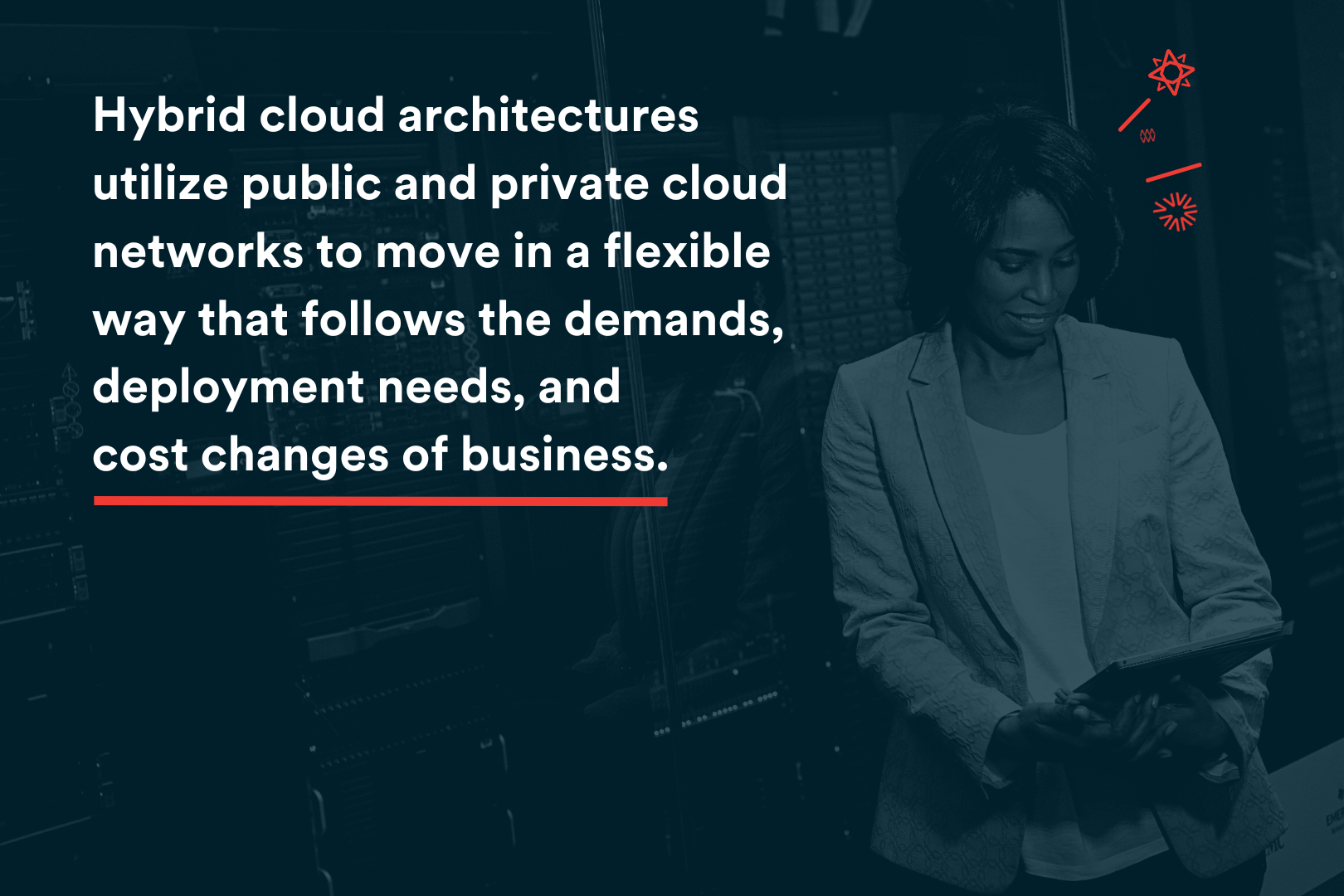Cloud infrastructure | digitalization | Cloud & Hybrid | Cloud Migration | Defining Dev
As you look into data solutions for your business, it’s nearly impossible to not see mentions of the cloud. Your organization might even be using the cloud right now to help store data and files that perform one or more services while being accessible to those who need them within your organization. There are several cloud services that can easily help transform your organization, but depending on the company, a full switch to a public cloud service may be too big of a change or simply not the right choice given the data you handle. Cloud/hybrid networks, better known as hybrid cloud architecture, offer a blended solution to keep your data both accessible and secure.
What is Hybrid Cloud Architecture?
Hybrid cloud architecture is a data solution that combines a public cloud service with an on-premises component, such as a server or a data center. This physical aspect of the hybrid cloud is sometimes referred to as a private cloud and allows data to be shared and managed between the public and private cloud as a single IT architecture.
Hybrid cloud architectures utilize public and private cloud networks to move in a flexible way that follows the demands, deployment needs, and cost changes of business. The term hybrid refers to the use of two infrastructures — where the workload uses both environments seamlessly for a single workflow. Opting to use a hybrid cloud gives you more options to make your IT environment compliant for your company and helps to keep your business up-to-date with the latest security and data protection standards.
How do Hybrid Clouds Work and How Do You Use Them?
You may be wondering how a Hybrid Cloud works, and it’s not so different from how these two, public and private clouds, work individually.
If the network connections between the cloud structures are not connected, then you are not running a genuine hybrid cloud infrastructure. Instead, it’s just several clouds operating parallel to one another which misaligns your data.
Different clouds such as private, public, and on-premises clouds can be connected by three different methods:
-
Virtual Private Networks (VPN)
A VPN Enables encrypted connections over the internet, operating and communicating as if it were part of the private internal network. When it comes to dealing with sensitive data both internally and externally at a company, a VPN is the most secure.
-
Wide Area Networks (WAN)
This connects computers over a distance, which is more reliable compared to the public internet but is still recommended to be used with VPN encryption.
-
Application Programming Interfaces (API)
Application Programming Interfaces allow you to connect databases, applications, platforms, and more. API integration is crucial for making hybrid cloud infrastructure work.

Why you should use Hybrid Cloud
When choosing data that is integral to your business and software to thrive, figuring out the right setup for you is key! You can use hybrid cloud architecture for data backups or migrate your data completely to the cloud while maintaining source fidelity. This can help your company, in the long run, to speed up business operations, secure sensitive information that would be susceptible to a breach or crash, and create sustainable, scalable means of data storage.
If your business is in a regulated industry, a hybrid cloud approach may be your best option. Some businesses are required to keep some of their more sensitive data on-site to prevent an external data breach.
Getting Started with Hybrid Cloud Architecture
If you are looking towards Cloud Hybrid Architecture for your business, Aviture can help you migrate your data to the cloud seamlessly. As an Amazon Web Services (AWS) partner with extensive experience in multiple hybrid and cloud-exclusive storage setups, we’d be delighted to help you develop and deploy your own hybrid cloud setup — reach out to get started today.




